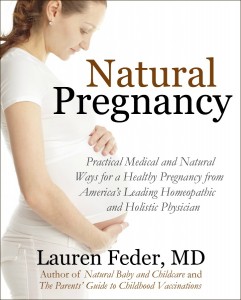Conscious Choice: Guidance for Choosing a Practitioner and Making Informed Choices
The following is an excerpt from Dr. Feder’s new book, Natural Pregnancy
Choosing a Practitioner

It is important to know your practitioner’s philosophy, as his or her ideology can greatly affect the outcome of your birth. Many women choose a practitioner based on friend’s recommendations, but the ideal practitioner for your friend may or may not be right for you. Some people stay with a doctor they have been seeing as a gynecologist. In general, if sometime during the pregnancy unforeseen events arise that negatively impact your relationship with the practitioner, it is appropriate to get a second opinion or change to another provider. Many practitioners offer monthly introductory meetings, and it is worth your while to interview several of them. In addition to expertise, it is important to take into account your personal observations and instincts about bedside manner, nursing, and support staff. Whether you are looking for a midwife or a doctor, make a list of questions that are important to you. Consider asking the following, especially if interested in a natural birth:
- What is your birth philosophy?
- What are your thoughts about going beyond the due date?
- What are your thoughts about doula support?
- Questions about interventions:
- What percentage of your clients delivers without medication?
- What is your rate of epidurals?
- What is your rate of episiotomy?
- How do you feel about eating and drinking during labor?
- Are IVs used routinely, or only if medically needed?
- Do you allow intermittent monitoring once I’m in labor at the hospital? (i.e., 20 minutes on and 40 minutes off)
- Once my water breaks, how do you handle time limits before going to the hospital?
- What is your C-section rate?
- What are your thoughts about cord clamping?
- What is your rate of transfer to a hospital? (For both home and birth centers.)
- What are your fees?
- Do you accept insurance?
Informed Choice: Making Decisions Using Your B.R.A.I.N.

In the United States we pride ourselves on the ability to offer women the most sophisticated obstetrical healthcare in a state-of-the-art environment. At various stages of pregnancy, different testing is done—some tests are routine while others are elective—but the important thing to note is that you have a choice about which tests to undergo. Many women do not know much about the tests or procedures that are available and instead rely on their practitioners, assuming that any information one receives is beneficial and harmless. As a result, many women have undergone testing without fully considering all the implications.
The American Congress of Obstetricians and Gynecologists (ACOG) recommends that practitioners provide patients with information about tests and procedures so that they can make an informed decision. However, practitioners often assume patients understand all the details about the tests and unfortunately do not always share the necessary information. Many childbirth educators, including the International Childbirth Education Association, adopt the BRAIN acronym (benefits, risks, alternative, intuition, nothing) in making a decision. Taking time to consider your options can offer clarity in all aspects of life, especially during pregnancy, birth, and beyond.
On ethical grounds, patients are supposed to be given information in a format that is easily understood and done without obligation. Yet, sometimes the information can be confusing and conflicting, and is dependent upon the healthcare providers’ point of view. Practitioners give advice based on expertise as well as their subjective experiences in life. Our generation is savvy, we have access to information on the Internet, which is sometimes a blessing and sometimes not. We are different from our parents who never questioned the medical profession. I encourage you to partner with your practitioners. If you do not know or understand, ask questions. Before undergoing any blood test, screen, or procedure use the BRAIN acronym and ask the following questions (as well as any others you may have):
- Benefits: What are the benefits to my baby and me?
- Do I understand what the test or screening is for?
- Is it necessary, routine, or elective?
- How will this help my pregnancy or labor?
- Risks: What are the risks to my baby and me?
- How will this affect us?
- If the test result is unfavorable, what are the implications and choices?
- Alternatives: Have I been informed about similar or alternative tests?
- Do I have another choice?
- Intuition/Instinct: What is my gut feeling?
- Does the information make sense?
- Nothing/Need Time/Not Now: What if I decide to do nothing and wait?
- Can I wait on this decision (to allow time to discuss this with my family and think it through)?
Remember, this is your pregnancy and your baby, and your informed choice is the most important—even if you are not in the medical field!

